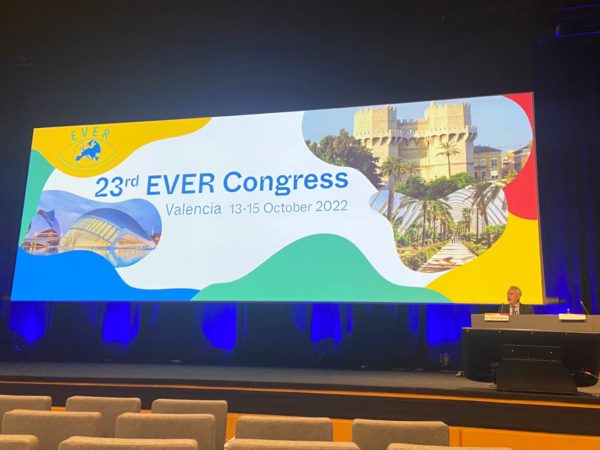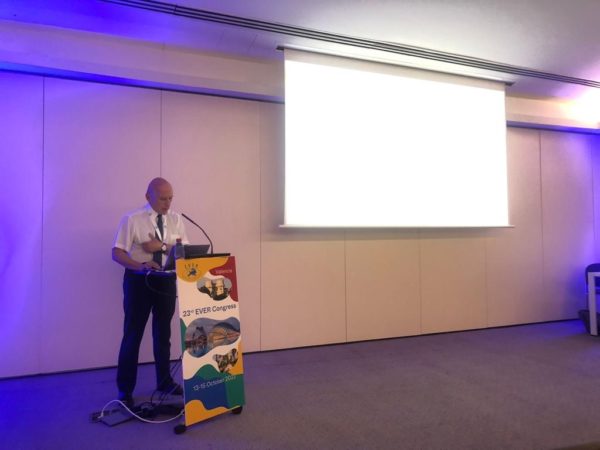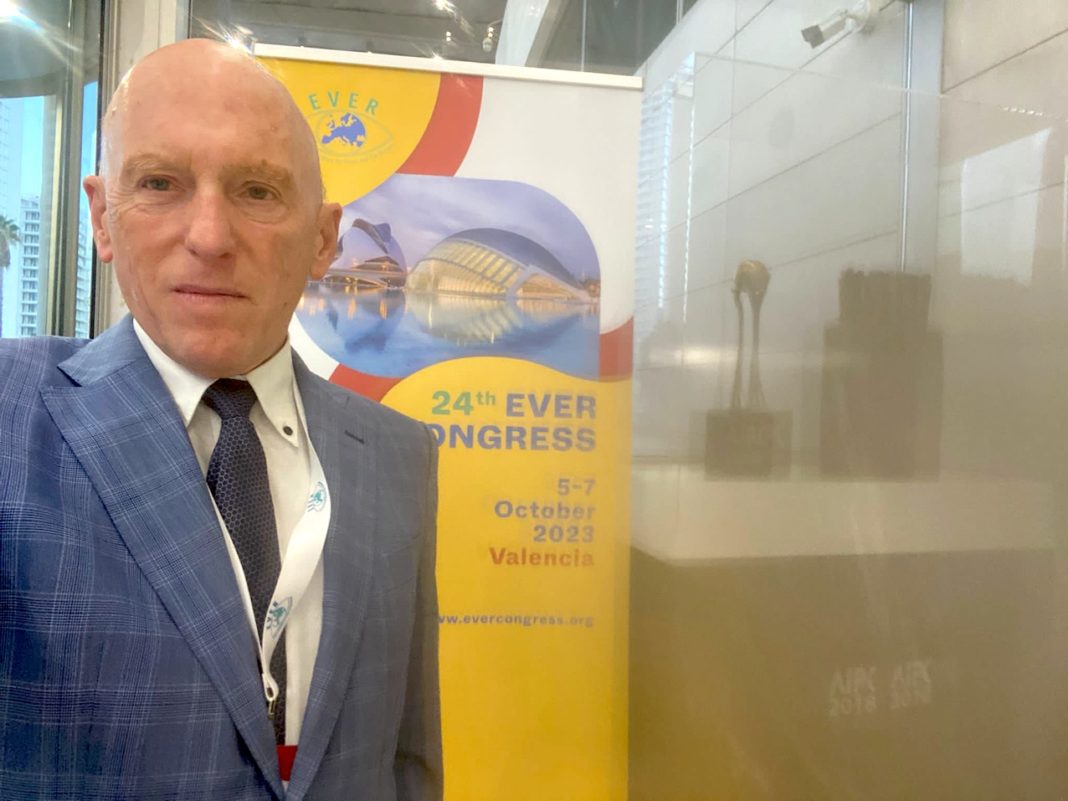- The first conclusions of the study, based on the doctor’s accommodative technology, were presented at the 23rd EVER Congress in Valencia
Dr. Jorge Alió continues to carry out research projects to improve the visual health, concretely in the cases of cataracts or presbyopia, and may be really close to find a new treatment for these health problems.
The professor of Ophthalmology at the Miguel Hernández University (UMH) of Elche recently attended the 23rd edition of the Congress of the Scientific Society European Association for Vision and Eye Research (EVER) in Valencia, to present the preliminary results obtained by a new intraocular lens based on accommodative technology with which is possible to solve these ocular pathologies.

Prof. Jorge Alió, considered one of the 100 best scientists in medicine in Spain by ‘Research.com’, was the organizer of the symposium on ‘Regenerative surgery of the ocular surface’ in which he spoke about the regeneration of the corneal stroma. He also took advantage of this opportunity, showed the evolution of corneal stromal densitometry in a clinical model of cell therapy for advanced keratoconus.
Dr. Alió is one of the most experienced researchers in keratoconus, as indicated by the international reference classification in biomedicine ‘Expertscape‘.
On the other hand, the founder of Vissum ophthalmology clinics (Miranza Group) presented a scientific article on the ‘Comparison of ocular aberrations and retinal image quality provided by a validated aberrometer and a new open-field aberrometer for the VEMoS project’. Undoubtedly, an opportunity to present their latest studies and to learn about the latest developments in the world of ophthalmology.

EVER (European Association for Vision and Eye Research) is the leading ophthalmological research association in Europe, covering all areas of ophthalmology and visual sciences. It has more than 850 members from 48 countries worldwide and is represented by eleven scientific sections, ranging from epidemiology to optics, cornea to retina, and immunology to genetics.
Its aim is to promote research and dissemination of knowledge about the eye and vision through meetings, publications and exchange of information.





